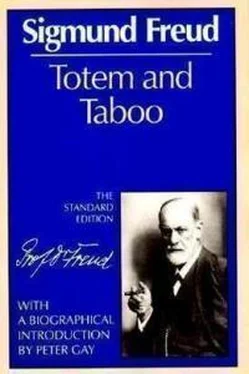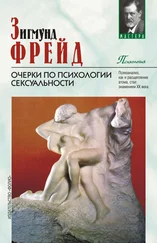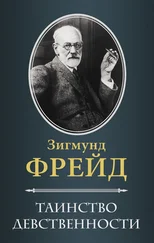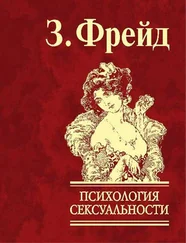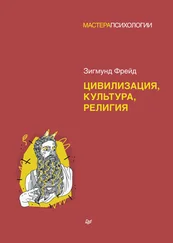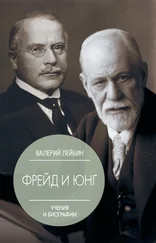Зигмунд Фрейд - Totem and Taboo
Здесь есть возможность читать онлайн «Зигмунд Фрейд - Totem and Taboo» весь текст электронной книги совершенно бесплатно (целиком полную версию без сокращений). В некоторых случаях можно слушать аудио, скачать через торрент в формате fb2 и присутствует краткое содержание. Год выпуска: 2014, Издательство: epubBooks Classics, Жанр: Психология, на английском языке. Описание произведения, (предисловие) а так же отзывы посетителей доступны на портале библиотеки ЛибКат.
- Название:Totem and Taboo
- Автор:
- Издательство:epubBooks Classics
- Жанр:
- Год:2014
- ISBN:нет данных
- Рейтинг книги:3 / 5. Голосов: 1
-
Избранное:Добавить в избранное
- Отзывы:
-
Ваша оценка:
- 60
- 1
- 2
- 3
- 4
- 5
Totem and Taboo: краткое содержание, описание и аннотация
Предлагаем к чтению аннотацию, описание, краткое содержание или предисловие (зависит от того, что написал сам автор книги «Totem and Taboo»). Если вы не нашли необходимую информацию о книге — напишите в комментариях, мы постараемся отыскать её.
Totem and Taboo — читать онлайн бесплатно полную книгу (весь текст) целиком
Ниже представлен текст книги, разбитый по страницам. Система сохранения места последней прочитанной страницы, позволяет с удобством читать онлайн бесплатно книгу «Totem and Taboo», без необходимости каждый раз заново искать на чём Вы остановились. Поставьте закладку, и сможете в любой момент перейти на страницу, на которой закончили чтение.
Интервал:
Закладка:
When little Arpád was two and a half years old he once tried, while at a summer resort, to urinate into the chicken coop, and on this occasion a chicken bit his penis or snapped at it. When he returned to the same place a year later he became a chicken himself, was interested only in the chicken coop and in everything that occurred there, and gave up human speech for cackling and crowing. During the period of observation, at the age of five, he spoke again, but his speech was exclusively about chickens and other fowl. He played with no other toy and sang only songs in which there was something about poultry. His behaviour towards his totem animal was subtly ambivalent, expressing itself in immoderate hating and loving. He loved best to play killing chickens. “The slaughtering of poultry was quite a festival for him. He could dance around the animals’ bodies for hours at a time in a state of intense excitement [197] Ferenczi, l.c. , p. 209.
.” But then he kissed and stroked the slaughtered animal, and cleaned and caressed the chicken effigies which he himself had ill–used.
Arpád himself saw to it that the meaning of his curious activity could not remain hidden. At times he translated his wishes from the totemic method, of expression back into that of everyday life. “Now I am small, now I am a chicken. When I get bigger I shall be a fowl. When I am bigger still, I shall be a cock.” On another occasion he suddenly expressed the wish to eat a “potted mother” (by analogy, potted fowl). He was very free with open threats of castration against others, just as he himself had received them on account of onanistic preoccupation with his penis.
According to Ferenczi there was no doubt as to the source of his interest in the activities of the chicken yard: “The continual sexual activity between cock and hen, the laying of eggs and the creeping out of the young brood” [198] Ferenczi, l.c. , p. 212.
satisfied his sexual curiosity which really was directed towards human family life. His object wishes have been formed on the model of chicken life when we find him saying to a woman neighbour: “I am going to marry you and your sister and my three cousins and the cook; no, instead of the cook I’ll marry my mother.”
We shall be able to complete our consideration of these observations later; at present we will only point out two traits that show a valuable correspondence with totemism: the complete identification with the totem animal [199] Frazer finds that the essence of totemism is in this identification: “Totemism is an identification of a man with his totem.” Totemism and Exogamy , IV, p. 5.
, and the ambivalent affective attitude towards it. In view of these observations we consider ourselves justified in substituting the father for the totem animal in the male’s formula of totemism. We then notice that in doing so we have taken no new or especially daring step. For primitive men say it themselves and, as far as the totemic system is still in effect to–day, the totem is called ancestor and primal father. We have only taken literally an expression of these races which ethnologists did not know what to do with and were therefore inclined to put it into the background. Psychoanalysis warns us, on the contrary, to emphasize this very point and to connect it with the attempt to explain totemism [200] I am indebted to Otto Rank for the report of a case of dog phobia in an intelligent young man whose explanation of how he acquired his ailment sounds remarkably like the totem theory of the Aruntas mentioned above. He had heard from his father that his mother at one time during her pregnancy had been frightened by a dog.
.
The first result of our substitution is very remarkable. If the totem animal is the father, then the two main commandments of totemism, the two taboo rules which constitute its nucleus,—not to kill the totem animal and not to use a woman belonging to the same totem for sexual purposes,—agree in content with the two crimes of Oedipus, who slew his father and took his mother to wife, and also with the child’s two primal wishes whose insufficient repression or whose re–awakening forms the nucleus of perhaps all neuroses. If this similarity is more than a deceptive play of accident it would perforce make it possible for us to shed light upon the origin of totemism in prehistoric times. In other words, we should succeed in making it probable that the totemic system resulted from the conditions underlying the Oedipus complex, just as the animal phobia of ‘little John’ and the poultry perversion of ‘little Arpád’ resulted from it. In order to trace this possibility we shall in what follows study a peculiarity of the totemic system or, as we may say, of the totemic religion, which until now could hardly be brought into the discussion.
W. Robertson Smith, who died in 1894, was a physicist, philologist, Bible critic, and archæologist, a many–sided as well as keen and free–thinking man, expressed the assumption in his work, The Religion of the Semites [201] The Religion of the Semites , Second Edition, London, 1907.
, published in 1889, that a peculiar ceremony, the so–called totem feast , had, from the very beginning, formed an integral part of the totemic system. For the support of this supposition he had at his disposal at that time only a single description of such an act from the year 500 A.D.; he knew, however, how to give a high degree of probability to his assumption through his analysis of the nature of sacrifice among the old Semites. As sacrifice assumes a godlike person we are dealing here with an inference from a higher phase of religious rite to its lowest phase in totemism.
I shall now cite from Robertson Smith’s excellent book [202] The Religion of the Semites , Second Edition, London, 1907.
those statements about the origin and meaning of the sacrificial right which are of great interest to us; I shall omit the only too numerous tempting details as well as the parts dealing with all later developments. In such an excerpt it is quite impossible to give the reader any sense of the lucidity or of the argumentative force of the original.
Robertson Smith shows that sacrifice at the altar was the essential part of the rite of old religions. It plays the same rôle in all religions, so that its origin must be traced back to very general causes whose effects were everywhere the same.
But the sacrifice—the holy action [Greek: κατεξογη katezogê] (sacrificium [Greek: ἱερουργἱα ieronrgia])—originally meant something different from what later times understood by it: the offering to the deity in order to reconcile him or to incline him to be favourable. The profane use of the word was afterwards derived from the secondary sense of self–denial. As is demonstrated the first sacrifice was nothing else than “an act of social fellowship between the deity and his worshipper”.
Things to eat and drink were brought as sacrifice; man offered to his god the same things as those on which he himself lived, flesh, cereals, fruits, wine and oil. Only in regard to sacrificial flesh did there exist restrictions and exceptions. The god partakes of the animal sacrifices with his worshippers while the vegetable sacrifices are left to him alone. There is no doubt that animal sacrifices are older and at one time were the only forms of sacrifice. The vegetable sacrifices resulted from the offering of the first–fruits and correspond to a tribute to the lord of the soil and the land. But animal sacrifice is older than agriculture.
Linguistic survivals make it certain that the part of the sacrifice destined for the god was looked upon as his real food. This conception became offensive with the progressive dematerialization of the deity, and was avoided by offering the deity only the liquid part of the meal. Later the use of fire, which made the sacrificial flesh ascend in smoke from the altar, made it possible to prepare human food in such a way that it was more suitable for the deity. The drink sacrifice was originally the blood of the sacrificed animals; wine was used later as a substitute for the blood. Primitive man looked upon wine as the “blood of the grape”, as our poets still call it.
Читать дальшеИнтервал:
Закладка:
Похожие книги на «Totem and Taboo»
Представляем Вашему вниманию похожие книги на «Totem and Taboo» списком для выбора. Мы отобрали схожую по названию и смыслу литературу в надежде предоставить читателям больше вариантов отыскать новые, интересные, ещё непрочитанные произведения.
Обсуждение, отзывы о книге «Totem and Taboo» и просто собственные мнения читателей. Оставьте ваши комментарии, напишите, что Вы думаете о произведении, его смысле или главных героях. Укажите что конкретно понравилось, а что нет, и почему Вы так считаете.
